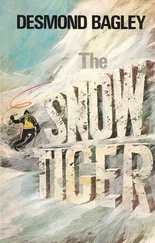"That's the dead boy's brother, sir," he whispered to me. "He's in a total rage. I haven't been able to get him out of here."
I shook Mohammad Asif out of his trance. "Take my car and get these women home, first of all."
"Let my boy go," I told the policeman loudly. "He's got to get the people in there home. Whatever you want to deal with, you deal with me."
"How can you let him go?" the brother of the dead boy yelled at the policeman.
"Look here, son," I said, "I am the owner of this vehicle. Your fight is with me, not with this driver. He was following my orders, to drive as fast as he could. The blood is on my hands, not his. These girls need to go home. Come with me to the police station-I offer myself as your ransom. Let them go."
The policeman played along with me. "It's a good idea, son. We need to register the case at the station."
While I kept the brother engaged by pleading to his reason and human decency, Mohammad Asif and all the girls got into my van and slipped away. That was the first objective-to get the girls home. I have signed a contract with their company, and I honor all that I sign.
I went to the police station with the dead boy's brother. The policemen on night duty brought me coffee. They did not bring the boy coffee. He glared at me as I took the cup; he looked ready to tear me to pieces. I sipped.
"The assistant commissioner will be here in five minutes," one of the policemen said.
"Is he the one who's going to register the case?" the brother asked. "Because no one has done it so far."
I sipped some more.
The assistant commissioner who sat in the station was a man whom I had lubricated often. He had fixed a rival for me once. He was the worst kind of man, who had nothing in his mind but taking money from everyone who came to his office. Scum.
But he was my scum.
My heart lifted at the sight of him. He had come all the way to the station at night to help me out. There is honesty among thieves, as they say. He understood the situation immediately. Ignoring me, he went up to the brother and said, "What is it you want?"
"I want to file an F.I.R.," the brother said. "I want this crime recorded."
"What crime?"
"The death of my brother. By this man's"-pointing a finger at me-"vehicle."
The assistant commissioner looked at his watch. "My God, it's late. It's almost five o'clock. Why don't you go home now? We'll forget you were here. We'll let you go home."
"What about this man? Will you lock him up first?"
The assistant commissioner put his fingers together. He sighed. "See, at the time of the accident, your brother's bicycle had no working lights. That is illegal, you know. There are other things that will come out. I promise you, things will come out."
The boy stared. He shook his head, as if he hadn't heard correctly. "My brother is dead. This man is a killer. I don't understand what's going on here."
"Look here-go home. Have a bath. Pray to God. Sleep. Come back in the morning. We'll file the F.I.R. then, all right?"
The brother understood at last why I had brought him to the station-he understood at last that the trap had shut on him. Maybe he had only seen policemen in Hindi movies until now.
Poor boy.
"This is an outrage! I'll call the papers! I'll call the lawyers! I'll call the police!"
The assistant commissioner, who was not a man given to humor, allowed himself a little smile. "Sure. Call the police."
The brother stormed out, shouting more threats.
"The number plates will be changed tomorrow," the assistant commissioner said. "We'll say it was a hit-and-run. Another car will be substituted. We keep battered cars for this purpose here. You're very lucky that your Qualis hit a man on a bicycle."
I nodded.
A man on a bicycle getting killed-the police don't even have to register the case. A man on a motorbike getting killed-they would have to register that. A man in a car getting killed-they would have thrown me in jail.
"What if he goes to the papers?"
The assistant commissioner slapped his belly. "I've got every pressman in this town in here."
I did not hand him an envelope at once. There is a time and a place for these things. Now was the time to smile, and say thanks, and sip the hot coffee he had offered me; now was the time to chat with him about his sons-they're both studying in America, he wants them to come back and start an Internet company in Bangalore-and nod and smile and show him my clean, shining, fluoridated teeth. We sipped cup after cup of steaming coffee under a calendar that had the face of the goddess Lakshmi on it-she was showering gold coins from a pot into the river of prosperity. Above her was a framed portrait of the god of gods, a grinning Mahatma Gandhi.
A week from now I'll go to see him again with an envelope, and then he won't be so nice. He'll count the money in front of me and say, This is all? Do you know how much it costs to keep two sons studying in a foreign college? You should see the American Express bills they send me every month! And he'll ask for another envelope. Then another, then another, and so on. There is no end to things in India, Mr. Jiabao, as Mr. Ashok so correctly used to say. You'll have to keep paying and paying the fuckers. But I complain about the police the way the rich complain; not the way the poor complain.
The difference is everything.
The next day, sir, I called Mohammad Asif to the office. He was burning with shame over what he had done-I didn't need to reproach him.
And it was not his fault. Not mine either. Our outsourcing companies are so cheap that they force their taxi operators to promise them an impossible number of runs every night. To meet such schedules, we have to drive recklessly; we have to keep hitting and hurting people on the roads. It's a problem every taxi operator in this city faces. Don't blame me.
"Don't worry about it, Asif," I said. The boy looked so devastated.
I've come to respect Muslims, sir. They're not the brightest lot, except for those four poet fellows, but they make good drivers, and they're honest people, by and large, although a few of them seem to get this urge to blow trains up every year. I wasn't going to fire Asif over this.
But I did ask him to find out the address of the boy, the one we had killed.
He stared at me.
"Why go, sir? We don't have to fear anything from the parents. Please don't do this."
I made him find the address and I made him give it to me.
I took cash out of my locker in crisp new one-hundred-rupee notes; I put them in a brown envelope. I got into a car and drove myself to the place.
The mother was the one who opened the door. She asked me what I wanted, and I said, "I am the owner of the taxi company."
I didn't have to tell her which one.
She brought me a cup of coffee in a cup set in a metal tumbler. They have exquisite manners, these South Indians.
I poured the coffee into the tumbler, and sipped the correct way.
There was a photo of a young man, with a large jasmine garland around it, up on the wall.
I said nothing until I finished the coffee. Then I put the brown envelope on the table.
An old man had come into the room now, and he stood staring at me.
"First of all, I want to express my deep sorrow at the death of your son. Having lost relatives myself-so many of them-I know the pain that you have suffered. He should not have died."
"Second, the fault is mine. Not the driver's. The police have let me off. That is the way of this jungle we live in. But I accept my responsibility. I ask for your forgiveness."
I pointed to the brown envelope lying on the table.
"There are twenty-five thousand rupees in here. I don't give it to you because I have to, but because I want to. Do you understand?"
Читать дальше












